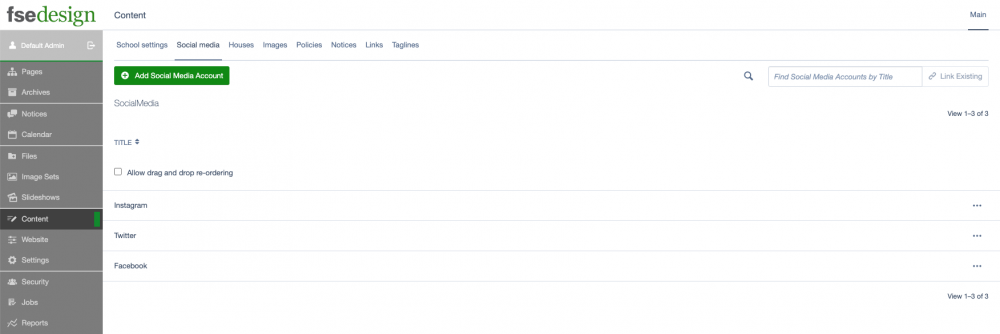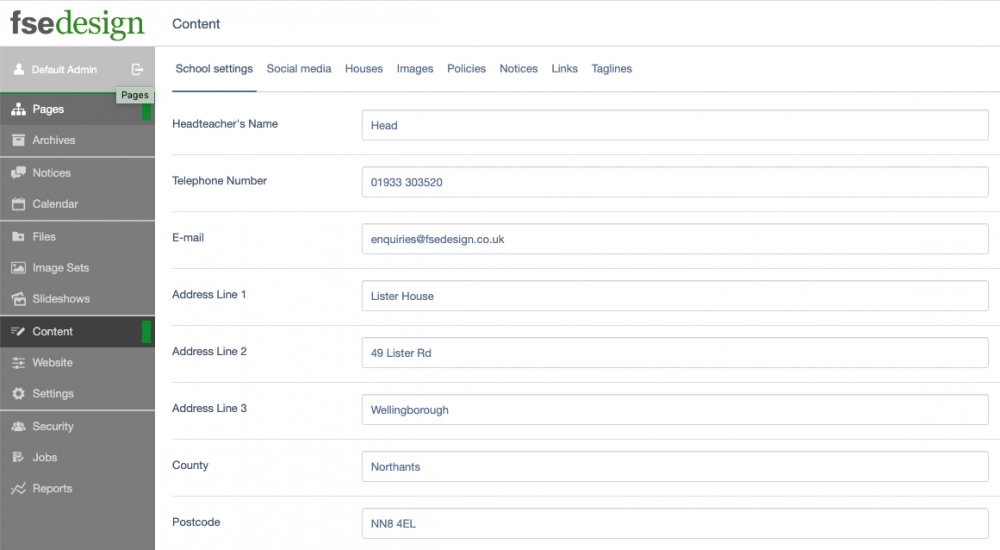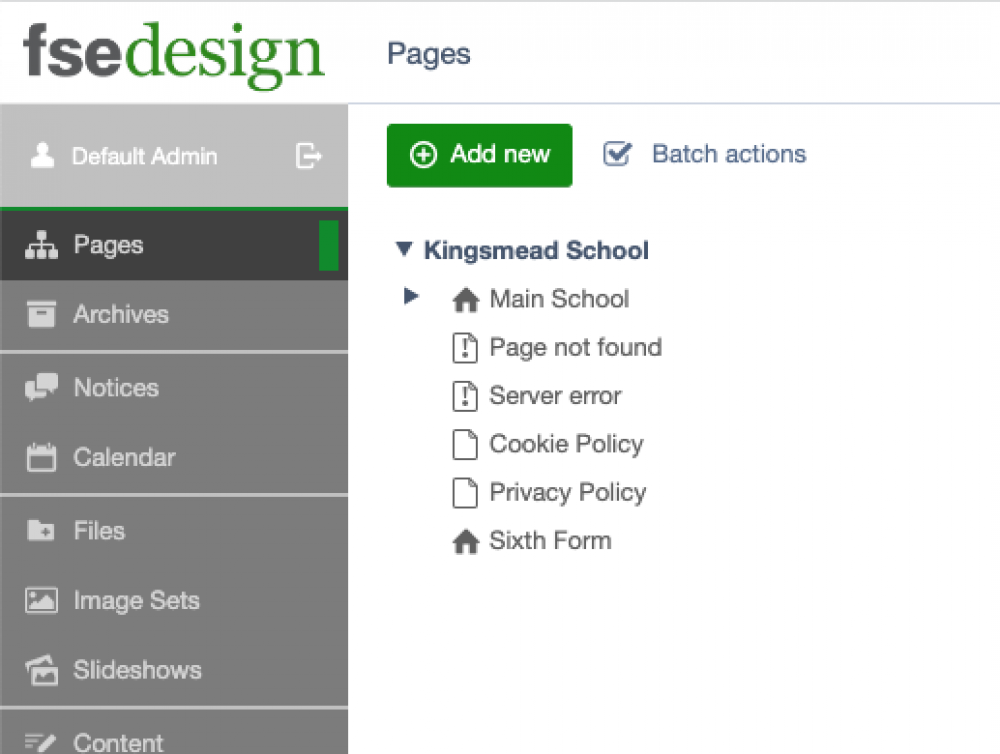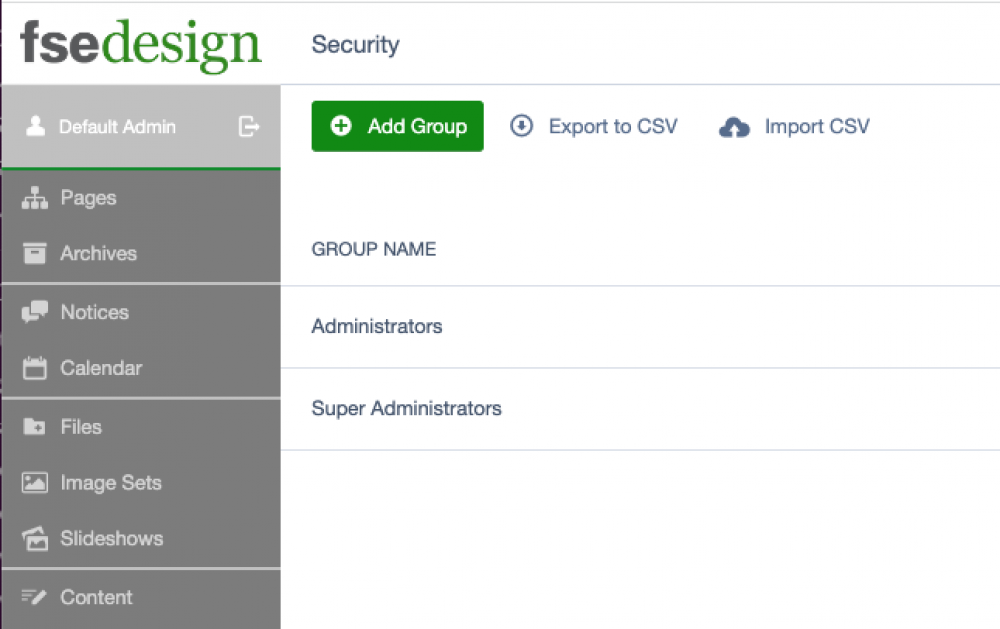An introduction to Content Management Systems
There are many different content management systems to choose from when building maintainable websites these days. There are two main types of Content Management System (CMS); server-based (where code is edited by a developer and placed on a server managed independently) and web-based (where templates are chosen and content uploaded to a system built and managed on a centrally maintained set of servers).
Perhaps the most well known in the first category, with a large eco-system of templates and plugins is Wordpress. Drupal and Joomla are also popular for brochure sites and most e-commerce sites choose Adobe Commerce (Magento), Wordpress with the Woo-Commerce plugin or another similar system.
There are an increasing array of web-based CMS systems such as Wix and Squarespace for brochure sites and Shopify and others for e-commerce sites.
FSE’s CMS
After many years building bespoke school websites however, FSE Design have found that none of these options suit our educational clients. There really isn't a solution on the market that combines the administrative ease with the design and functionality flexibility required for good school website design and maintenance.
As a result we decided to build our own Symfony framework into a tailored product for our designers, developers and clients to each have their own needs met while not over-complicating the interfaces for each role. Symfony is an open source framework which is a great place to start when developing any project of this kind. Open source code is more secure and versatile than closed source or proprietary software due to the fact that all contributions are public and extensively error checked and tested.
Our CMS separates the roles of content authors (who get a rich (AJAX) web-based user interface that omits technical jargon) and website designers and developers (who write code: HTML, CSS, JavaScript, and PHP) to achieve the required functionality.
Additionally we have developed multiple plug and play modules that provide functionality specifically required by each school. Is Twitter your social media platform of choice, or Facebook, or perhaps both? Do you like to write news articles and combine them with a Twitter feed on your homepage? Does your school use Outlook, Google or another manually edited calendar to schedule events? Do you have a house points system in your school? Whatever integrations you want, we have either developed or can develop integrations for our CMS. That is the beauty of having a bespoke CMS developed in-house with a team of developers working with a standardised open source framework.
Why is this important?
It gives schools a streamlined, intuitive, customised CMS to work with. Training can be achieved within an hour and authoring content is amazingly straightforward. School admins don't have to view a back end full of plugins requiring updates or overly complex and unnecessary management tools. Our developers can add bespoke functionality without external plugins and put all the controls requiring school administration in the most sensible place. No more searching for that drop down amongst a plethora of confusing administration screens. No ore superfluous controls or ways to break your site.
For our developers it allows far more freedom to code completely from scratch with absolutely no reliance on third party plugins with the multitude of problems they lead to. At FSE we control all of our code, we have access to it and don't rely on an unknown external developer to update a Wordpress calendar plugin if it stops working with outlook or google calendar. This also affords us the freedom to build functionality specific to a school client like booking systems for facilities or specially styled sixth-form sections with their own sub-homepage. The opportunities are endless.
In Conclusion...
Our CMS is an absolute pleasure to work with for both our developers and our clients. And most important of all it affords us the opportunity to enthusiastically say 'yes!' when a school asks if they can add some specific features that make their site unique. No need to trawl through available plugins and check compatibility or handover a site made of bits and pieces maintained by outside developers with no accountability.
The FSE CMS allows FSE Design to provide beautiful, in-house, bespoke sites for our school clients without the encumbrances of other content management systems web-based or not.





